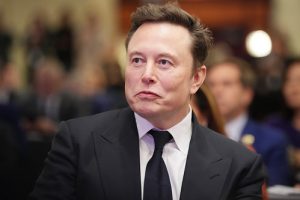Controversial CRISPR scientist promises “no more gene-edited babies” until society comes around

The subject is genome editing. Of course, it’s a technology for changing the DNA inside of individual cells, including embryos. It’s hard to overstate its importance. I put it up there with the invention of the transistor and artificial intelligence.
And why do I think so? Well, genome editing gives humans control, or at least the ability to try and direct the very processes that brought us about as a species. So it’s that profound.
Getting to JK’s story. In 2018 we had a scoop—he might call it a leak—in which we described his experiment, which, as Mat said, was to edit human embryos to delete a particular gene called CCR5 with the goal of rendering the children, of which there were three, immune to HIV, which their fathers had and which is a source of stigma in China. So that was the project.
Of course our story set off, you know, immediate chaos. Voices were raised all over the world—many critical, a few in support. But one of the consequences was that JK and his team, the parents and the doctors, did not have the ability to tell their own story—in JK’s case because he was, in fact, detained and has completed a term in prison. So we’re happy to have him here to answer my questions and those of our subscribers. JK, thank you for being here.
Several people, including Professor Michael Waitzkin of Duke University, would like to know what the situation is with the three children. What do you know about their health, and where is this information coming from?
He Jiankui: Lulu, Nana, and the third gene-edited baby—they were healthy and are living a normal, peaceful, undisturbed life. They are as happy as any other people, any other children in kindergarten. I have maintained a constant connection with their parents.
Antonio Regalado: I see. JK, on X, you recently made a comment about one of the parents—now a single mother—who you said you were supporting financially. What can you tell us about that situation? What kind of obligations do you have to these children, and are you able to meet those obligations?
He Jiankui: So the third genetic baby—the parents divorced, so the girl is with her mother. You know, a single mother, a single-parent family—life is not easy. So in the last two years, I’m providing some financial support, but I’m not sure it’s the right thing to do or whether it’s ethical, because I’m a scientist or a doctor, and she is a volunteer or patient. For scientists or doctors to provide financial support to the volunteer or patient—it correct? Is it the right thing to do, and is it ethical? That’s something I’m not sure of. So I have this question, actually.




